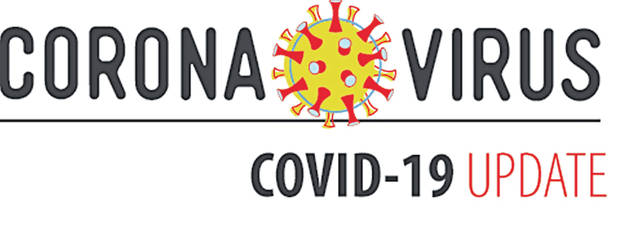
In a new effort to help mitigate the spread of COVID-19, a network across Ohio is studying samples of wastewater to look for the presence of fragments from the virus that cause the disease. An upward trend of viral gene copies has been detected in samples collected from the Washington Court House Wastewater Treatment plant, according to Fayette County Public Health (FCPH).
“This trend is an early indicator that cases of COVID-19 in the community may be increasing,” said Leigh Cannon, FCPH deputy health commissioner. “Residents should be on alert and remain vigilant in their efforts to social distance, wear face coverings, and adhere to prevention efforts such as frequent hand-washing.
“This emerging information is being used by Fayette County Public Health in conjunction with our community case numbers and other COVID-19-related data to further inform decisions as we respond to the pandemic,” she continued. “At this time, Fayette County Public Health is alerting healthcare providers, nursing homes, and other shared-living facilities to be prepared for a potential increase in cases.”
The increase of COVID-19 cases in communities is typically tracked by testing people with symptoms, an indicator that lags behind the actual spread of the disease. However, research has shown that non- infectious RNA (ribonucleic acid) from the virus that causes COVID-19 can be detected in wastewater as many as three to seven days before those infections lead to increases in case counts or hospitalizations. This means that monitoring raw wastewater in sewage collection systems can provide an early warning of disease increase in a community.
When interpreting this specific viral data in wastewater, it is only appropriate to monitor and observe the trends of viral gene copies detected in a community over time — not individual readings themselves. Levels in Washington Court House have increased 79% from 140,000 MGC/day on Oct. 28 to 250,000 MGC/day on Nov. 4 (MGC/day is measured by the N2 [virus gene] Average per sample times Flowrate, divided by million and rounded to first two significant digits), according to FCPH.
The Ohio Coronavirus Wastewater Monitoring Network is a collaboration between the Ohio Department of Health (ODH), the Ohio Environmental Protection Agency (Ohio EPA), the U.S. Environmental Protection Agency (U.S. EPA), the Ohio Water Resources Center (Ohio WRC) at The Ohio State University, and other participating universities, including The University of Toledo, Kent State University, and The University of Akron.
Cannon emphasized Monday that the virus that causes COVID-19 has not been detected in drinking water.
“It is important to note that the water discharged from the treatment plants is treated to remove viruses and bacteria and is monitored to meet all state and federal discharge limits,” she said. “The reason that wastewater is monitored is that non-infectious RNA from the virus that causes COVID-19 can be excreted in the feces of both symptomatic and asymptomatic infected people and can be detected in wastewater as many as three to seven days before those infections lead to increases in case counts or hospitalizations.”
The wastewater monitoring project is measuring for RNA remnants of the virus. Currently, there is no evidence that viable virus survives long enough in the sewers to reach a wastewater treatment plant.
FCPH was closed to the public on Monday to allow staff time to work on COVID case investigations and contact tracing. According to Cannon, 154 new cases of COVID-19 with a symptom onset from Nov. 1 to Nov. 15 have been reported in Fayette County.
Because of the delay between initial contact with a physician or healthcare provider, testing, and diagnosis, this is preliminary data and is expected by public health officials to increase as the health department continues to receive lab results.
Due to the increased demand on staff time and resources for COVID-19 response, the health department will also be closed to the public Nov. 23-25. Also, Nov. 26 and 27 are scheduled closures for the Thanksgiving holiday.
On Monday, FCPH reported 68 new local COVID cases (60 confirmed, eight probable) from the weekend and 71 new recoveries. The age range has changed and is now from under 1-year-old to 98-years-old.
As of Monday, there were 11 individuals hospitalized and 80 total hospitalizations. There were 194 active cases.
FCPH reported there have been 179 new cases in the county in the past two weeks, which puts the county at 627.52 cases per 100,000. The CDC defines “high incidence” as 100 cases per 100,000.
FCPH staff is contacting individuals as quickly as possible, according to Cannon. If you have tested positive for COVID-19, please stay home, self-isolate and wait for a call from the health department. Find more information here: https://www.cdc.gov/…/if-you-are-sick/isolation.html.
FCPH confirmed an additional five positive student cases and one positive staff case at Miami Trace High School since Friday.
“We are monitoring the situation at our high school very closely and working cooperatively with the local health department,” said Miami Trace Superintendent Kim Pittser in a statement. “The goal of our current Plan B -Hybrid is to reduce the contacts which in turn may reduce the spread. The first attempt at implementing hybrid back in October was successful, and we hope it will meet its goal again. Miami Trace is blessed with a purchased service that places a health department nurse in each of our three school buildings. We are thankful for their medical guidance through the current pandemic situation. If you have any questions or concerns, please call us at 740-335-3010.”
As of Monday, Pittser said the high school had a total of nine positive student cases, two positive staff cases and 132 were quarantined. District-wide they had 10 positive student cases, three positive staff cases and 190 quarantined.
Washington Court House City Schools are also operating in the hybrid plan this week, which reduces student capacity by 50 percent.
Reach Record-Herald Editor Ryan Carter at 740-313-0352.


